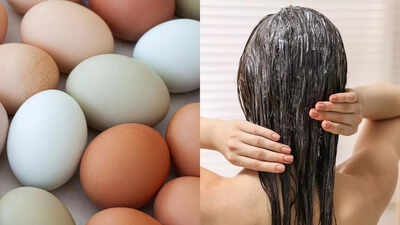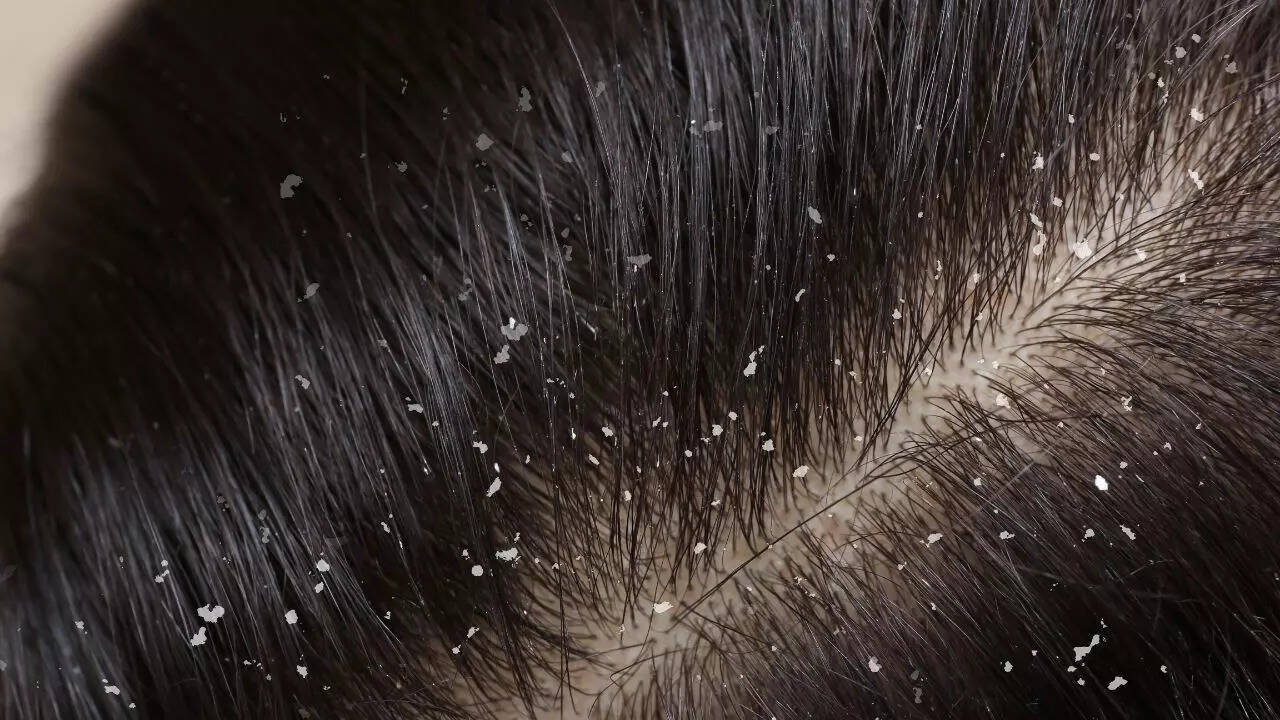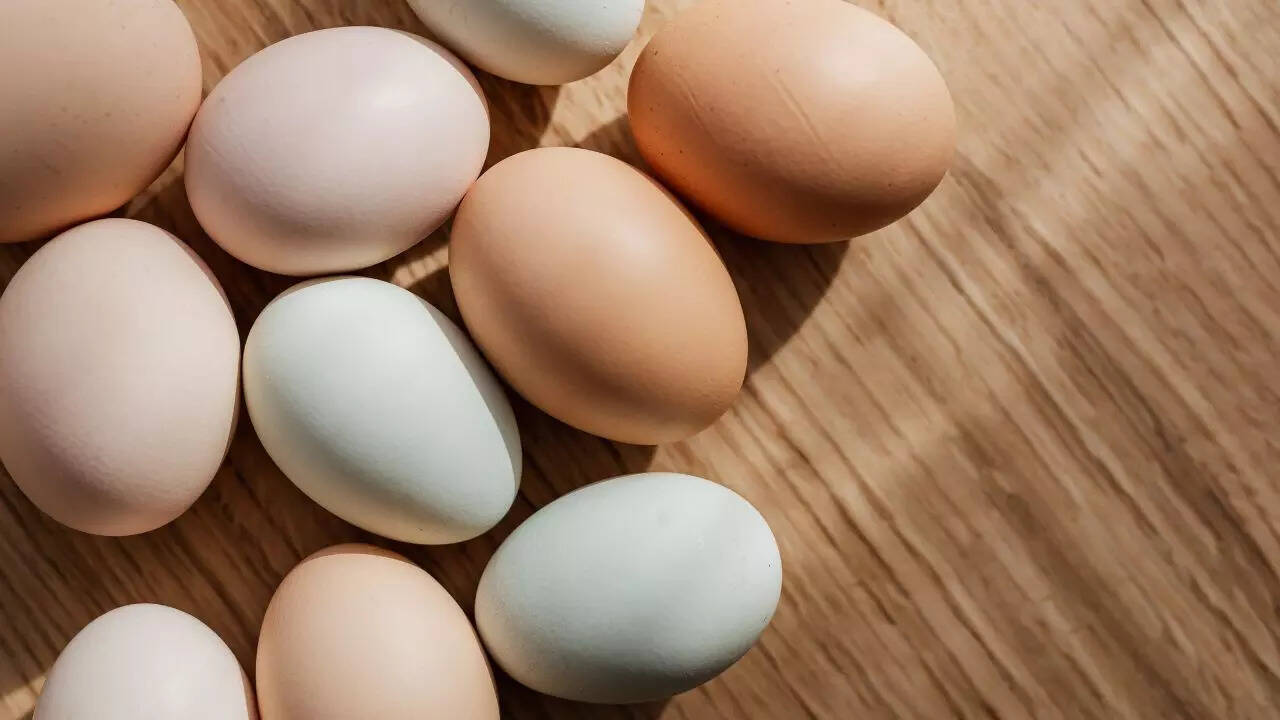Can eggs remove dandruff naturally? The science behind egg masks for a flake-free scalp |

If you have been battling stubborn dandruff, you have probably tried every trick in the book, from medicated shampoos to fancy serums. But what if one of the simplest solutions was sitting right in your kitchen? Eggs, known for their rich protein content, have been used for centuries to nourish hair and restore scalp health. They are packed with essential nutrients that strengthen hair follicles, regulate oil production, and keep the scalp hydrated, all of which are crucial in reducing dandruff.A study published in the Journal of Cosmetic Dermatology found that natural lipid-rich ingredients like egg yolk can improve scalp barrier function and reduce irritation linked to dandruff-causing microbes. This science-backed link between nutrition and scalp health explains why eggs remain a popular remedy for those seeking chemical-free alternatives.
How eggs help remove dandruff naturally
The primary cause of dandruff is an overgrowth of Malassezia yeast, which thrives on excess oil. Eggs help by balancing the scalp’s natural oils. The proteins in egg whites gently cleanse, while the fats and lecithin in yolks deeply condition the scalp. This dual-action formula keeps the scalp hydrated without becoming greasy, while also limiting fungal growth and flakiness.Moreover, eggs contain vitamins A, D, and E that help repair damaged skin cells on the scalp. Regular use helps strengthen hair roots, making them more resistant to dryness and irritation, two common triggers of dandruff. The sulphur in eggs also promotes collagen production, which keeps the scalp’s outer layer healthy and less prone to flaking.
Best ways to use eggs for dandruff removal

There are several easy ways to include eggs in your haircare routine without the mess or strong smell. A simple egg mask made with one or two eggs and a few drops of lemon juice helps cleanse excess oil and soothe itchiness. For dry scalps, mixing egg yolk with a tablespoon of olive oil provides deep hydration while combating flakes.Another effective remedy is combining egg yolk with yoghurt. The lactic acid in yoghurt exfoliates dead skin cells, while the proteins in eggs nourish new growth. Apply this mask to your scalp and hair, leave it for about 20 minutes, and rinse thoroughly with cool water. Avoid hot water, as it can cause the egg to cook slightly and cling to your strands.
How often to use egg masks for dandruff
For mild dandruff, using an egg-based mask once a week is enough. Those with persistent flakes or oily scalps can benefit from twice-weekly treatments. It is important to be consistent rather than overdo it, as too much protein can make hair stiff. Always follow up with a mild, sulphate-free shampoo to ensure all residues are removed.If the smell of eggs bothers you, rinse your hair with diluted apple cider vinegar or a few drops of tea tree oil added to water. Both act as natural clarifiers and help remove lingering odour while keeping dandruff at bay.
Why eggs are better than chemical dandruff treatments

Many anti-dandruff shampoos contain zinc pyrithione or ketoconazole, which can be effective but may dry out the scalp with prolonged use. Eggs, on the other hand, work by restoring the scalp’s natural pH balance and nourishing it from within. They provide a more holistic solution, not just removing flakes temporarily but improving overall scalp health.Additionally, the natural fats in eggs mimic the scalp’s own sebum, helping restore elasticity and moisture. This is particularly beneficial for people whose dandruff is caused by excessive dryness rather than oiliness. Over time, regular use can make the scalp feel softer, calmer, and visibly flake-free.Eggs may not replace clinical treatments for severe dandruff, but they can certainly support scalp recovery and prevent recurrence. The nutrients in eggs address the root causes such as dryness, irritation, and imbalance rather than merely masking symptoms. For best results, combine an egg-based remedy with a healthy diet rich in protein, biotin, and omega-3 fatty acids.So the next time you crack an egg for breakfast, save one for your haircare routine. A few consistent applications might just be what your scalp needs to stay healthy, nourished, and flake-free naturally.Disclaimer: This article is for general informational purposes only and is not a substitute for professional medical advice, diagnosis, or treatment. Always seek the guidance of a qualified healthcare provider regarding any medical condition or lifestyle change.Also read| Why you should NEVER apply lemon to your face: Risks and alternatives






